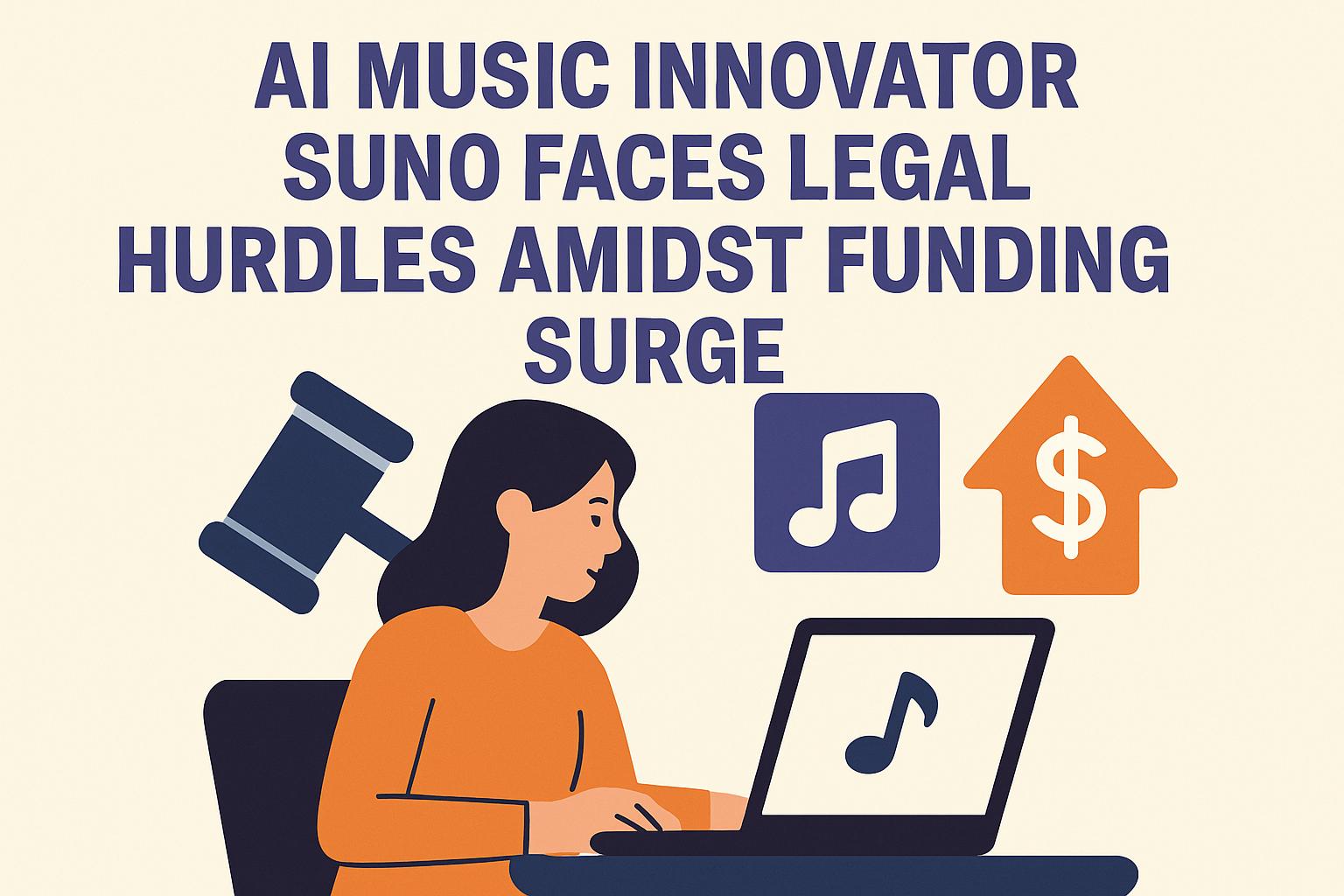In the ever-evolving landscape of AI-driven innovation, American startup Suno Inc. is carving out a niche in the music industry. Despite being embroiled in high-profile legal battles with major record labels like Universal Music Group and Warner Music Group over alleged copyright infringements, Suno is pressing forward with bold ambitions. The company is reportedly in talks to secure a new funding round that could amass over $100 million, propelling its valuation to an impressive $2 billion.
Accelerated Funding and Surging Valuation
Bloomberg reports indicate Suno’s aggressive pursuit of additional capital, elevating its valuation to four times its previous estimate. The company’s earlier funding rounds have already accumulated $125 million, with significant contributions from notable investors including Lightspeed Venture Partners, Founder Collective, former GitHub CEO Nat Friedman, and Y Combinator’s Daniel Gross. These investments have positioned Suno as a robust player in the burgeoning AI music market.
Remarkably, Suno’s annual revenue has surpassed $100 million, showcasing its capability to profit amidst the broader AI industry’s rise. Their technology simplifies music creation, allowing users to generate fully fleshed out songs with just a few lines of textual input. This ease of use has sparked interest among music enthusiasts and creators worldwide.
Legal Struggles with Record Giants
The innovative prowess of Suno’s AI-driven music generation, however, hasn’t come without controversy. Last year, industry behemoths such as Universal and Warner initiated legal action against Suno and another company, Udio, alleging unauthorized use of copyrighted material in AI model training. They seek substantial restitution, with potential damages reaching into the billions.
Negotiating a Path Forward
Despite these hurdles, Suno’s co-founder and CEO, Mikey Shulman, emphasizes the transformative nature of Suno’s technology, asserting its role in crafting new musical content rather than replicating existing works. Talks are reportedly underway between the involved parties to achieve a settlement, potentially leading to licensing and revenue-sharing agreements. This prospective collaboration, involving not just licensing fees but also equity exchanges, signals a pioneering approach for the music industry in navigating AI advancements.
Industry Wide Impact and Future Regulations
Concurrently, music streaming services are establishing new AI-related protocols to safeguard creator rights. Spotify, for instance, announced initiatives to collaborate on enhancing AI content identification and has rolled out strategies to curb AI-generated fraud. Additionally, Deezer, a European streaming service, has begun tagging AI-generated tracks to bolster transparency on their platform.
As Universal Music CEO Lucian Grainge underscores in internal communications, partnerships with AI entities are contingent on respecting artist integrity and intellectual property. AI offers the music industry novel tools for creation, but not at the expense of creators’ rights.

![[News] Bitcoin at a Turning Point? 10x Research Signals a Bullish Macro Shift Ahead](https://cryptoexplores.com/wp-content/uploads/2025/06/new20250616.jpg)
![[News] Binance Lists $HOME, the Gas-Free, Bridge-Free All-in-One DeFi App](https://cryptoexplores.com/wp-content/uploads/2025/06/news20250617.jpg)